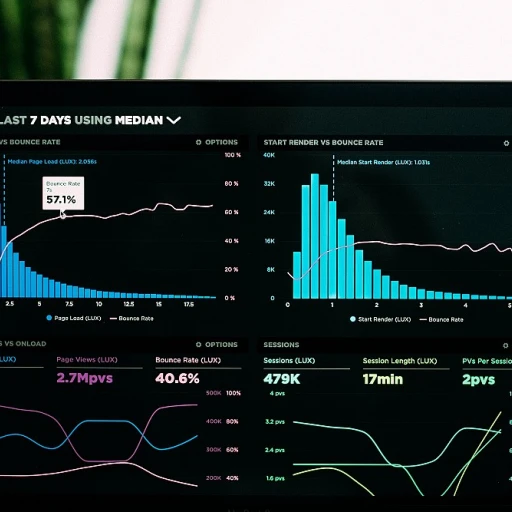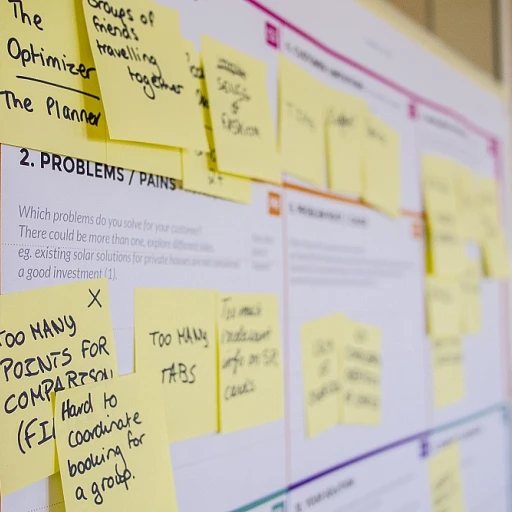
Exposing the Hidden Biases in AI-based SEO Tools
Uncovering the Unseen: Bias in AI SEO Applications
As search engine optimization (SEO) continues to evolve, artificial intelligence (AI) has become a cornerstone in crafting strategies that promise top search rankings. Yet, lurking beneath the surface of these sophisticated AI-driven SEO tools are hidden biases that can skew results and compromise the integrity of our digital marketplace. The challenge of identifying and addressing these biases is paramount to maintaining a level playing field online.
The Ripple Effect of Bias on Search Results
AI algorithms are trained on vast datasets that, unfortunately, may reflect historical prejudices or narrow perspectives. This training can inadvertently lead to biased outcomes in search results, favoring certain websites over others for reasons unrelated to the quality or relevance of their content. This propagation of bias is not just a technical concern; it's an ethical one, with real-world implications for businesses and consumers alike.
Pioneering Accountability in SEO: Recognizing AI's Implicit Prejudices
To forge a path towards more equitable SEO practices, it's imperative to acknowledge the biases inherently present in many AI systems. This recognition initiates a conversation about the profound impact these prejudices have on visibility and success in the online realm. Rigorous analysis and revision of AI algorithms can help dismantle unfair advantages and ensure a merit-based ranking that rewards high-quality content, irrespective of the source.
For a comprehensive examination of tackling bias and promoting fairness in AI-powered SEO strategies, visit Navigating the Maze: Addressing Bias and Fairness in AI-powered SEO Strategies.
Changing SEO Landscapes: The Critical Role of Fairness in Ranking
Assessing the Impact of AI on Search Engine Dynamics
The evolution of search engines has been nothing short of remarkable, and artificial intelligence (AI) has been at the forefront of this transformation. SEO professionals must now grapple with sophisticated algorithms that not only interpret keywords but also understand user intent, context, and content relevance. Despite AI's prowess in enhancing search engine optimization efficiency, there's an emerging conversation about the potential for inherent biases within AI systems to influence ranking decisions, thus affecting the fairness of SEO strategies.
Understanding AI's Role in Shaping Online Visibility
In the fast-paced realm of SEO, where high rankings equate to high visibility, the stakes for fairness are incredibly high. AI-driven algorithms are trusted to sift through oceans of data to present the most relevant search results. However, ensuring these results are fair and unbiased is a shared responsibility among developers, SEO professionals, and content creators. Fairness in SEO rankings means presenting users with content that is not only relevant but also diverse and representative. It's this principle that plays a critical role in maintaining a balanced digital ecosystem.
Fair Play: Levelling the SEO Playing Field with AI
Although AI has streamlined many SEO processes, unintentional biases can emerge from factors such as training data or algorithmic assumptions. These biases can skew search results, giving undue advantage or disadvantage to certain websites. As such, implementing strategies to promote fair play within AI-driven SEO is crucial. SEO experts are now focused on creating content that's inclusive and optimized for all demographics, ensuring that everyone has equitable digital access and representation. In this new landscape, it is essential to confront and correct biases to maintain not just ranking equity, but the integrity of search engines as gateways to information.
To explore these challenges further, please visit our in-depth analysis on Navigating the Maze: Addressing Bias and Fairness in AI-powered SEO Strategies.
Strategies to Mitigate AI Bias for Ethical SEO Practices
Implementing Ethical Optimization Techniques
When diving into the fabric of SEO strategies, one must consider the impact of Ethical SEO Practices. Artificial intelligence has made significant strides in search engine optimization, automating and refining how we approach content ranking. However, a critical and often overlooked aspect is the tendency of AI to inherit biases from the datasets it's trained on. To tackle AI biases head-on, digital marketers and SEO professionals need to equip themselves with strategies grounded in ethical considerations to ensure that the AI systems promote fairness and objectivity.
Building Diverse Training Sets
To diminish the skew of biased AI, it's imperative to start at the root: data. By developing training sets that are representative of a diverse range of inputs, the AI algorithms can learn to associate information beyond the myopic perspectives that often cloud decision-making processes. In practice, this involves meticulous curation of datasets that include a multiplicity of demographic factors, user behaviors, and content types. This strategy helps in diluting ingrained biases and builds towards an inclusive AI-driven SEO system.
Critical Analysis and Continuous Improvement
SEO tools and algorithms are not set-and-forget systems. Regular audit and critical analysis of their performance are paramount to identify and address biases. For instance, engaging in a thorough analysis of ranking outcomes and discerning any patterns that may suggest bias. Once identified, continuous improvement strategies can be deployed—adjusting algorithms, retraining AI models with corrective data, and applying ethical guidelines that are aligned with fairness in information dissemination. The iterative process of evaluating and refining AI-driven SEO tools is indicative of a commitment to ethical practices in the ranking of digital content.
Adopting Transparent AI Mechanisms
To uphold the integrity of SEO, transparency in AI-driven tools becomes non-negotiable. It enables stakeholders to understand how and why certain content gains visibility over others. This not only strengthens trust in the technology but empowers users to make informed decisions about the content they consume or create. In addition, transparent AI mechanisms pave the way for accountability, keeping the developers and distributors of SEO tools responsible for the outcomes of their AI systems.
Regulatory Compliance and Ethical Standards
Last but not least, aligning SEO practices with regulatory compliance and ethical standards serves as a deterrent to AI bias. As regulatory bodies catch up with the advanced pace of technology, devising regulations and guidelines specifically for AI in SEO is crucial. Professionals can adhere to these prescribed frameworks, ensuring they partake in promoting ethical SEO. Respecting user privacy, ensuring equality in content opportunity and upholding truthfulness in rankings are facets that can drive the future of AI-driven SEO towards a fairer horizon.
The integration of ethical approaches and bias mitigation strategies in AI-driven SEO is more than just an operational improvement; it's a contribution to a digital ecosystem that values fairness and equity. Readers interested in the pursuit of ethical SEO practices can further explore the significance of ethics in AI-driven search engine optimization.
The Future of AI-driven SEO: Ethical Frameworks and Guidelines
Implementing Ethical AI in SEO Strategies
As we delve into the intricacies of artificial intelligence (AI) and its prevalence in search engine optimization (SEO), it becomes imperative to address ethical considerations. AI's incredible capability to analyze vast data sets and discern patterns valuable for SEO has revolutionized the industry, but with such power comes responsibility. Mitigating bias and ensuring fairness must be a cornerstone of any AI-driven SEO strategy, whether it's keyword research, content creation, or link building.
Envisioning a Bias-Free Digital Ecosystem
Creating an ethical framework for AI in SEO begins with an ambitious vision: a digital ecosystem where rankings truly reflect the best answer to a user's query, free from any underlying prejudice. This ecosystem would prioritize user experience, relevance, and trustworthiness in its ranking mechanism, with AI as a facilitator of these values. Developing such frameworks is no easy feat, as it requires active collaboration between technologists, SEO experts, and, importantly, regulatory bodies. Together, they can establish guidelines that align with ethical principles and serve as a benchmark for fairness in digital marketing strategies.
Building Blocks for Ethical AI in SEO
In an effort to progress towards fairer SEO practices, there are diagnostic tools and transparency measures that need to be in place. For instance, SEO professionals must demand clarity on how AI algorithms function; a call for algorithms to be understandable and their decision-making processes laid bare. Moreover, data sets utilized by AI must be carefully curated to ensure they are comprehensive and representative of the diversity inherent to the online audience. Third-party audits and certifications could provide necessary oversight over algorithms, ensuring adherence to ethical guidelines.
Moving forward, ethical AI in SEO will require a blend of continual learning and adaptability. Algorithms will have to be trained to not only recognize, but also to adapt to evolving human values. Moreover, feedback mechanisms will be essential for identifying and correcting any deviant behavior or biases. This approach will pave the way for SEO optimization tools that are not only effective but also equitable.
Journey Towards Ethical Innovation
While the pursuit of bias-free AI in SEO is challenging, it is also a journey towards innovation and greater creativity. As ethical considerations shape AI developments, SEO experts are also encouraged to think outside the box and devise novel strategies that align with these new frameworks. It is a path that fosters inclusivity and fairness, pushing the boundaries of what AI can achieve in the field of digital marketing.
In conclusion, as previously examined, confronting biases in AI tools is crucial and implementing strategies to mitigate AI bias lays a strong foundation for fairness in SEO. The future is indeed promising for those committed to these ethical practices. By embracing the guidelines and frameworks proposed, SEO will not only thrive in effectiveness but will do so with integrity and fairness, safeguarding the trust of users and the credibility of the digital marketplace.













